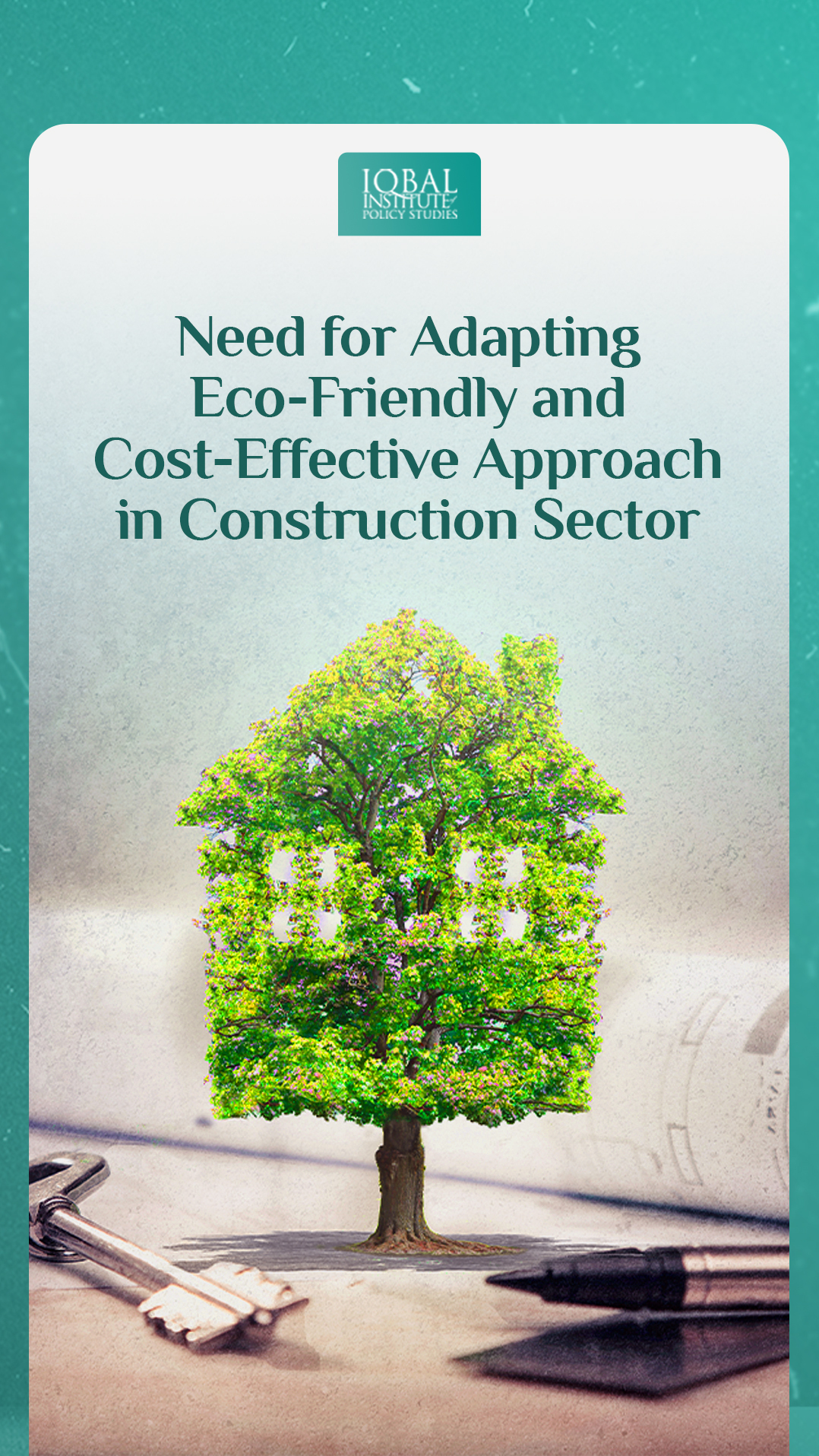The construction sector is the building block of a country’s economy. According to the Pakistan economic survey, the construction industry contributes 2.53% to the country’s Gross Domestic Product (GDP). According to the 2017 census, the annual population growth rate of the country is 2.4% which indicates a strong need for households and infrastructure. Moreover, the studies also suggest that more than 60% of other industries have linkages with the construction sector, accounting for 30-35% of direct and indirect labour participation.
With so much economic significance, the sector brings many environmental consequences due to outdated techniques and harmful quality methods. The industry consumes the maximum number of natural resources worldwide. It is also the biggest contributor to solid waste, which comprises mostly harmful ingredients, lead, asbestos, aluminium, etc., that hurt the environment, like deterioration of land at landfills, air pollution, a rise in dust and particulate debris, and a decline in quality of life. According to research conducted by Bimhow, the construction sector contributes 23% of air pollution, 50% of climatic change, 40% of water pollution, and 50% of landfill waste worldwide. The construction sector in Pakistan is highly energy and carbon-intensive, producing between 25% and 40% of global carbon emissions.
All these factors have a drastic impact on human lives and their environment. Hundreds of thousands of acres of fertile land have been sacrificed for housing extravaganza, causing depletion of natural climate that leads to the destruction of habitats for wildlife, flora and fauna, thus creating an imbalance in the ecological order. This further disturbs the climate equilibrium, giving way to various harms, including global warming, excessive rains, flooding, and extended droughts.
In addition, with the increasing country’s population, the housing demand is exacerbating, making it difficult for the authorities to fill the demand-supply gap of housing units. This leads to an increase in the cost of housing construction. This year, the cost of construction inputs, such as cement, steel, etc., has experienced an upward graph which caused a downfall in their sales, causing many under-construction projects to be put on hold.
Considering the negative impacts of the construction industry, which have been exacerbated due to its expensive and outdated methods and machinery, the government needs to transform the typical construction process to a less harmful and cost-effective approach to promote sustainability for a greener future. Moreover, before planning new construction projects, sites may be selected so that forestry and agriculture are minimally harmed. Sustainability is critical to improving and reducing the construction industry’s harmful environmental impacts. Adopting sustainable construction methodologies is crucial to balancing capital cost and long-term asset value.
ZigZag Technology for Brick Kilns
The brick kiln industry is one of the major contributors to air pollution that releases dangerous pollutants into the air during the brick-making process. Globally, the brick kiln industry contributes 20-25% of global air pollution. However, introducing zigzag technology in the brick kiln industry can help reduce the harmful emission of particulate matter and gaseous pollutants. It has been estimated that this technology can reduce black carbon by 60 per cent and particulate matter by 40 per cent.
Recycle the Construction Waste
Instead of crude dumping into landfills, compatible avenues of reusing and recycling must be incorporated into an all-inclusive construction and demolition waste management policy that can be implemented nationwide. There is a dire need to introduce a sustainable construction waste management mechanism for monitoring construction waste disposal and landfills.
We at IIPS conducted research and suggested an intelligent policy to recycle construction waste wood in making furniture for schools struggling to fulfil their students’ basic needs. The IMARAT Group of Companies has given reality to this thought by implementing the ‘Tameer Se Taleem’ campaign.



Leave a Reply